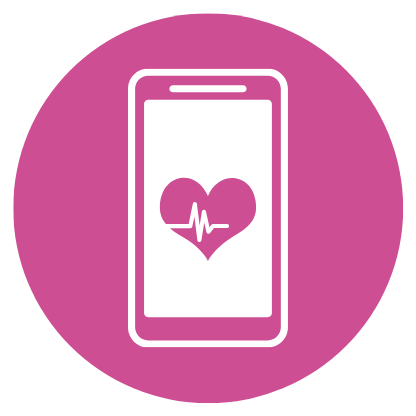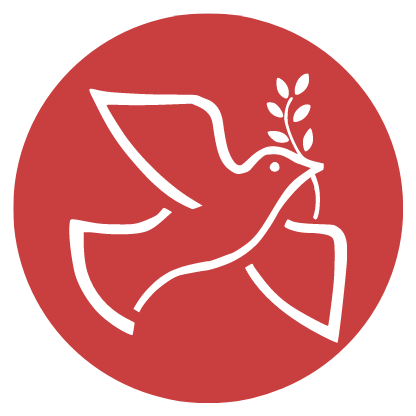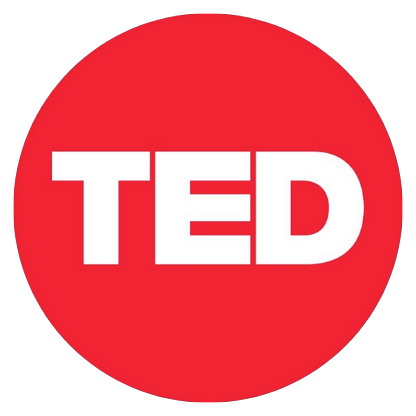Health Coach for Chronic Diseases | Priscilla Pemu | TED
We Make Your Education Count

Get the Credit You Deserve and Become the Most Attractive Job Candidate by Earning and Posting A+ Badges to Your Linkedin Profile.
Sign Up to Get Started at Accredicity
|
Discover how cultural understanding and coaching can lead to improved health for those suffering from chronic diseases. Priscilla Pemu, a doctor in Benin City, Nigeria, discusses the need for a health coach for those living with chronic diseases. She explains that when she began her career as a doctor, she quickly realized that her prescribed medications and office advice were not enough to treat her chronically ill patients. She shares how in the United States, six out of ten adults have a chronic disease and that healthy habits account for 50 percent of people's health. To help people with chronic diseases, Priscilla and her colleagues created a technology application that helps people track their health metrics, such as blood pressure and sugar, and learn about their conditions with the help of a health coach. They found that the health coaches from the church spent more time with patients, establishing a connection and understanding their culture, which was essential for successful self-management. Priscilla believes this concept of culturally compatible training has the potential to change the lives of the 125 million Americans and beyond. Learning Outline1. Chronic diseases, like heart disease, asthma, and diabetes, can be difficult to treat and manage. Instructional ContentPriscilla Pemu’s video on personal health coaching for those living with chronic diseases is a powerful story of how healthcare can be transformed by understanding the unique needs of individuals. Through her story, Pemu demonstrates the importance of building relationships with patients and understanding the cultural context of their health. She also highlights the effectiveness of technology in helping people better manage their chronic conditions. The video begins by introducing Pemu, who has been a doctor in Benin City, Nigeria for 30 years. She shares her experience of feeling powerless to help her chronically ill patients, despite having the skills and knowledge to do so. She then transitions to Atlanta, Georgia and presents data that emphasizes the prevalence of chronic diseases in the United States. She then introduces the concept of a “smart app” that can help individuals better manage their chronic conditions. Pemu then dives into the concept of “culturally compatible training” and its effectiveness in helping people learn self-management skills. She shares the story of one of her patients, Mrs. Bertha, to illustrate how a health coach from a local church was able to build a relationship of trust and understanding with her. Through this relationship, Mrs. Bertha was able to learn more about her condition and take the necessary steps to manage it. Overall, Priscilla Pemu’s video offers an important reminder of the importance of shifting our approach to healthcare and making sure we provide the best care possible for those living with chronic diseases. By focusing on relationships and understanding the cultural context of health, we can make sure that everyone has access to the resources and support they need to live a full life. Leadership
|

Priscilla Pemu is a doctor from Nigeria who got frustrated with how she was unable to help her chronically ill patients. She came up with the idea of a personal health coach for those living with chronic diseases. The coach helps these people learn to make decisions on their own, like when to take their medication and what to do if they experience side effects. In addition to this, the coach helps patients cope with loneliness, isolation, and anxiety. Priscilla's team has developed an app to help track things like blood pressure and sugar, as well as a platform that teaches people about their health. They have also been successful in teaching people self-management skills, which has helped many to improve their health. Priscilla's program is unique because the coaches from the church spend more time with the patients and build relationships, which allows them to understand the patient's culture and find them at a deeper level. Video Quotes1. "We asked this question: What if we could create a resource that would motivate people to change their healthy behavior?" - Priscilla Pemu Related QuotesPriscilla Pemu is a doctor from Nigeria who got frustrated with how she was unable to help her chronically ill patients. She came up with the idea of a personal health coach for those living with chronic diseases. The coach helps these people learn to make decisions on their own, like when to take their medication and what to do if they experience side effects. In addition to this, the coach helps patients cope with loneliness, isolation, and anxiety. Priscilla's team has developed an app to help track things like blood pressure and sugar, as well as a platform that teaches people about their health. They have also been successful in teaching people self-management skills, which has helped many to improve their health. Priscilla's program is unique because the coaches from the church spend more time with the patients and build relationships, which allows them to understand the patient's culture and find them at a deeper level. Competencies1. Coaching Learning Outcomes1. Remember: Identify main ideas and facts related to the use of "culturally identical training" as a tool to help individuals with chronic diseases. Sample AnswersI have learned that chronic diseases like heart disease, asthma, and diabetes require more than just the traditional prescription and doctor's advice to be managed properly. I have also learned that healthy habits account for half of the health outcomes that people experience, while healthcare accounts for only a fifth. Finally, I have learned that there is a technology application available to help people track their health indicators, as well as work with a health coach to learn self-management skills. This ensures that even those in disadvantaged communities have access to the resources they need to manage their chronic illnesses. Priscilla PemuPriscilla Pemu is a certified Executive Health & Wellness Coach, a Certified Professional Coach, a member of the American College of Sports Medicine, and holds a Master in Public Health. She is a health and wellness expert with over 10 years of experience working with individuals, organizations and communities. Priscilla has a strong focus on chronic disease prevention and health promotion. She has worked with clients to develop healthy lifestyle habits, develop self-care practices, and create individualized health plans. She is also the founder of the Pemu Institute, an organization that provides coaching, education, and support to individuals living with chronic diseases. Priscilla Pemu is an expert on Health Coach for Chronic Diseases because of her extensive experience and knowledge in the field.Priscilla Pemu Learning DesignThe competencies of Coaching, Health Literacy, and Cultural Sensitivity are important for the Leadership course as they are all essential for effective leadership. Coaching is important for successful leadership as it encourages employees to develop their skills and grow, allowing them to contribute to the organization in a meaningful way. Health Literacy is important as it helps leaders to understand the physical and mental health of their employees and create an environment that promotes health and safety. Finally, Cultural Sensitivity is important for leaders to ensure that they are aware of and sensitive to the cultural norms and values of their employees, and to create an environment that is inclusive and respectful of all backgrounds. To help students build these competencies, a blended learning approach can be used. This includes both online and face-to-face experiences, and can involve activities such as group discussions, role-playing, case studies, and videos. For the Coaching competency, students can be taught the basics of coaching and then given opportunities to practice their skills in a safe environment. For Health Literacy, students can be given real-life scenarios to analyze and discuss, and for Cultural Sensitivity, students can be provided with resources to help them learn about different cultures, and engage in activities to help them empathize with different backgrounds. Through these activities, students can develop and practice the competencies necessary for successful leadership. AssessmentQ: What is culturally compatible training? A. A way to prevent chronic diseases QuestionsQuestions for students: Questions for real-life applications: KeywordsChronic Diseases, Personal Health Coach, Self-Management Skills, Culturally Compatible Training, Robert Wood Johnson, Centers for Disease Control, Healthy Habits, Health Care, Complications Prevention, Language Barriers, Culture Barriers, Inadequate Health Insurance Facts1. More than 6 out of 10 adults in the US suffer from chronic disease. Trends1. Developing an online course that teaches people about different cultural norms and how they can be applied to chronic diseases for better self-management. SourceThis learning instructional guidance was formulated using the GPT-3 language model created by OpenAI. ShareMeet Priscilla Pemu! For over 30 years she has dedicated her career to helping those living with chronic diseases live a full life. With her technology app, she & her colleagues have enabled people to track and monitor their health. #ChronicDisease #HealthCoach #Technology 🤝📲 @Accredicity |








 11 Creds - Leadership
11 Creds - Leadership


